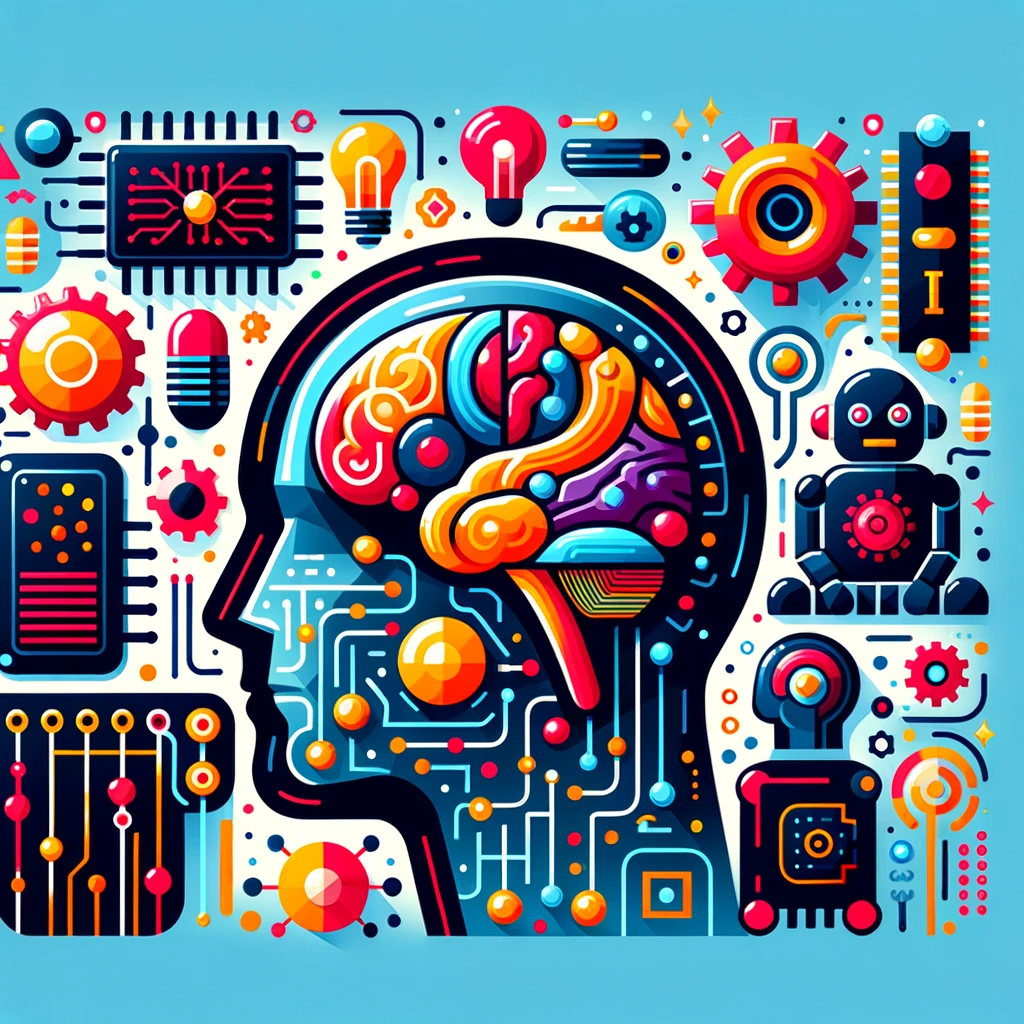
AI for New Learners: 13 Crucial Points, #8 is a Jaw-Dropper
Introduction
Welcome to the revolutionary world of Artificial Intelligence (AI), a field intertwining technology and innovation, reshaping our future. Whether you’re a tech enthusiast, a career seeker, or simply AI-curious, this comprehensive guide uncovers the core of AI. We’ll explore fundamental concepts, cutting-edge advancements, and AI’s impact on various sectors. Let’s embark on this enlightening AI journey.
1. What is AI?
Artificial Intelligence, or AI, represents the pinnacle of machine capabilities, enabling computers to perform tasks that traditionally require human intellect. This includes complex problem-solving, learning from experiences, and adapting to new inputs. Think of AI as a blend of computer science and robust datasets, driving machines to mimic human thought processes and decision-making.
2. The Birth of AI
The concept of AI dates back to the 1950s when scientists first explored the idea of crafting machines with human-like intelligence. The term ‘Artificial Intelligence’ was coined in 1956, marking the inception of AI as a formal field of academic study. This era laid the foundational principles of AI that continue to guide modern advancements.
3. Machine Learning – AI’s Heart
Machine Learning, a critical subset of AI, empowers machines to learn and evolve from data without explicit programming. It’s akin to teaching a child through experience. ML algorithms analyze patterns in data, enabling computers to make predictions or decisions, thus driving AI innovations in various applications.
4. Deep Learning – Going Deeper
Deep Learning, an advanced segment of Machine Learning, involves neural networks inspired by the human brain’s structure. These networks process vast amounts of data, facilitating intricate tasks like image and speech recognition, pivotal in advancing AI’s capabilities and applications.
5. AI Applications You Use Daily
AI’s integration into daily life is profound and often subtle. Virtual assistants like Siri and Alexa, personalized content on Netflix, and smart email filtering are quintessential AI applications enhancing our everyday experiences. These user-friendly AI integrations illustrate the technology’s practicality and ubiquity.
6. Transforming Industries with AI
AI’s transformative power is revolutionizing various industries. In healthcare, AI aids in early disease detection and personalized treatment plans. In finance, it’s used for risk assessment and fraud detection. AI-driven autonomous vehicles in transportation exemplify AI’s disruptive potential in reshaping industry norms.
7. Ethical AI – A Balancing Act
As AI evolves, ethical considerations become paramount. Issues like data privacy, algorithmic bias, and ethical decision-making are at the forefront of developing responsible AI. Balancing technological advancement with ethical responsibility is crucial in the sustainable progression of AI.
8. Quantum Computing & AI: The Future [Jaw-Dropper]
Quantum computing stands as the next monumental leap in technology, set to revolutionize AI. Quantum computers, with their ability to process complex calculations at unprecedented speeds, will unlock AI capabilities far beyond current limitations. This synergy could lead to breakthroughs in drug discovery, climate modeling, and beyond, offering solutions to some of humanity’s most intricate challenges.
9. AI’s Role in Environmental Solutions
AI contributes significantly to environmental sustainability. Through predictive analytics, AI aids in climate change modeling and natural resource management. It also enhances renewable energy deployment, optimizing wind and solar energy production. AI’s role in crafting sustainable solutions underscores its significance in addressing global environmental challenges.
10. The AI Job Market
The AI job market is burgeoning, with demand for AI skills skyrocketing. Careers in AI span various roles, including data scientists, machine learning engineers, and AI researchers. For those eyeing a future-proof career, acquiring AI expertise offers a competitive edge in this rapidly evolving job landscape.
11. Learning AI – No Tech Background Needed
Embarking on an AI learning journey is accessible to everyone, tech background or not. Online platforms provide a plethora of AI courses, tutorials, and resources catering to all levels. Engaging in communities, attending webinars, and hands-on projects can also enrich your AI learning experience.
12. AI Myths Debunked
Common myths surrounding AI often paint a picture of an ominous, all-controlling force. However, AI is neither infallible nor omniscient. It’s a tool, shaped and governed by human input and ethical frameworks. Debunking these myths is essential in understanding AI’s realistic capabilities and limitations.
13. The Ongoing Journey of AI Learning
The field of AI is dynamic and ever-evolving. Staying abreast of the latest trends, breakthroughs, and ethical discussions is key to a comprehensive understanding of AI. Continuous learning, curiosity, and adaptability are vital in navigating the exciting world of AI.
Conclusion
Embarking on your AI journey opens a realm of endless possibilities and discoveries. AI is not just a technological marvel; it’s a pathway to future innovations and solutions. As you explore this beginner’s guide, remember that the world of AI is as vast as it is fascinating, and your exploration is just beginning.
Ready to take your AI knowledge to the next level? Join our AI Mastermind Course and gain not just understanding but certification in AI. Designed for beginners, this course will solidify your AI foundation and prepare you for the future. Enroll now and transform your curiosity into certified expertise! Visit aimastersmindcourse
#aibeginners #aimasterminds #aimastermind #aijouney